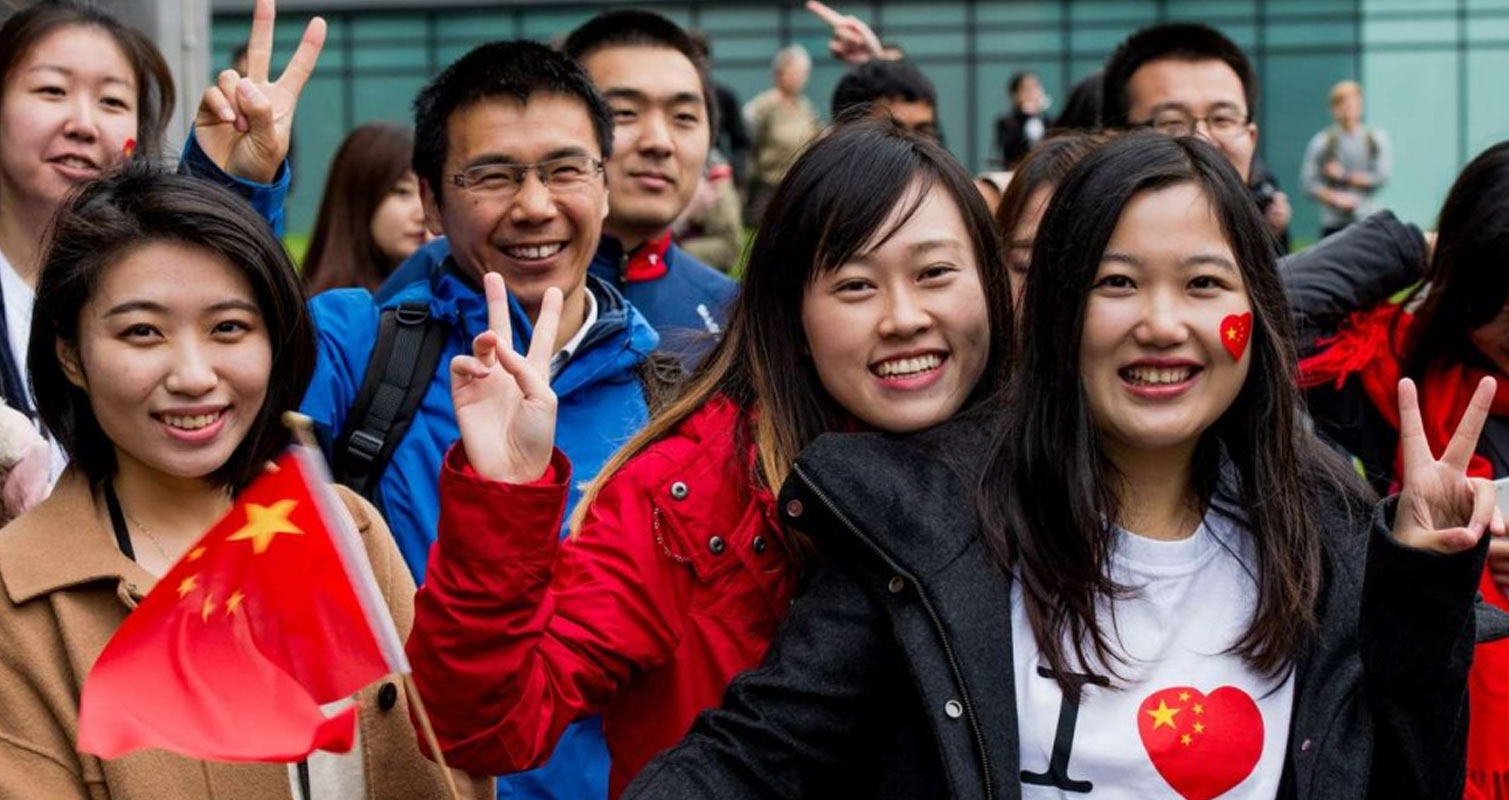Economic masters and newspapers all over the world talk about the “China Opportunity.” The Chinese continue to innovate and evolve at super-fast rates, it is also one of the fastest growing consumer markets, making it an important country to watch.
But while the West has been worrying about the East for a while now, an important question arises. Should we, MENA, also be looking at China for not only business opportunities, but also for when China comes to us?
With an estimated 40+ million Chinese living overseas, and with around 400 million millennials, China is definitely fighting to the biggest international future market. So, how can we prepare for a rush of the East? We spoke to Zak Dychtwald, CEO of Young China Group, a think tank and advisory designed to create understanding about Eastern and Western millennials for individuals, companies, and governments.
Dychtwald tours the world, talking about the East/West Global Millennial Mindset and his book “Young China: How the Restless Generation Will Change Their Country and the World.” Today, he spoke with Think Marketing Magazine about why MENA should be looking at Chinese millennials, how can we prepare to market to them and what we should know before we try.
- Advertisement -
Let’s start with, do you believe it is important for MENA businesses to understand more about “Young China” and why?
“Yes, it is massively important. Why? Impact. China has 417 million millennials. There are more millennials in China than in all of North America, Europe, and the Middle East combined. China’s millennials are also coming of age with relative wealth, as China is now considered “the world’s middle class.”
This young generation in China is already redefining every market they touch—from travel to film to fashion to automotive. Neglect them at your own peril, as they are the most powerful group global consumers of the present and future.”
What kind of stereotypes do you believe MENA businesses should be aware of, and what should businesses know before reaching out to China’s youth?
“First, we need to ditch ideas of “Old China.” When we imagine China, we mostly think of “old China”—Beijing opera, silk finery, and that big wall. We need to start shifting our focus from the past to the present. This young generation is currently redefining what it means to be “Chinese” in the modern era, and if you think it is just what China used to be, you’re wrong.
Second, we need to remember that people are not their government. We ought to relentlessly pursue a people-first approach to understanding China. Too often when we look at China from the outside, we focus solely on the Chinese government. But how much do you know about the people within the country international media constantly says represents the world’s future? What are their hopes, dreams, and aspirations? What keeps them up at night? What do they hope for themselves, their family, their country? Focus on people, not just a faceless “governed mass.”
Aside from being essential to issues like world peace and global collaboration, a people-first approach to China is the key to business success there.”
How do you believe the west, and MENA, see China and its youth in general? How accurate do you believe their beliefs are?
“I think we rarely see Chinese youth at all, focusing instead on macro-economics (exciting!) or politics (sort of scary!). People-forward stories mostly cover the extremes—super rich or super poor, Maserati driving rich kids or dog-meat eating festivals in the countryside. The work I try to do is really bringing stories and understanding of the “ordinary” in China, which is seriously under-represented.
The understanding disparity between China and the rest of the world is stark. They understand the outside far more than the outside understands them.”

Let’s reverse the question, how do the Chinese see MENA’s people/youth? Dubai, Cairo, KSA, etc.
“China sees MENA through the lens of the news.
Dubai is rich, Cairo is a cool tourist destination, and there is a broader business opportunity that is being promoted by the government. There is a large opportunity for a truly rich and nuanced relationship between MENA countries and China, but it has to begin with genuine attempts at understanding and collaboration, not just between governments but between people.”
There are a lot of similarities when it comes to the youth of MENA and China. Both have a lot of pressure to work “successful” jobs, get married young and produce the next generation, but what do you see as fundamental differences in MENA and China’s youth?
“I have absolutely loved my time in MENA countries over the last couple of years, but I can’t pretend to intimately understand what young people here are thinking. I can only speak to what my friends here. There is an underdog attitude I see from young entrepreneurs in both China and MENA countries, a feeling that they’re being neglected by the some of the established world and that they have something to prove. It’s a mix of grit, ability, and a want to prove themselves on the world stage.
There is also the similar attitude that most of the world misunderstands them. Most of the news in Western countries about both China as well as many MENA countries focuses on crises and scandals. When things get good, reporters leave. There is a want to be seen and overturn stereotypes in both places.”
You talk often about, and your book focuses a lot on, how China’s youth will change the world, but how do you see it impacting or changing MENA in the next 5, 10, 20 years?
“For MENA, China is unrivalled in its potential for impact here because it represents an alternative. Over the last century, much of the world has equipped itself to do business with the West. That this magazine is in English is easy evidence of that. Wealth creation and trade was largely tied to the West.
China’s enormous market and potential as a trade partner means that MENA has more choices of who to do business with, how to do business, and also how to model its own economy and way of being a modernizing culture. China will play a major economic role in MENA’s future.”
With that in mind, do you believe that we, MENA, are well-equipped to handle, market and sell to young Chinese? What can you advise marketers to do or learn in order to be ready for when China really knocks on our door?
“With respect, no, very few here are well-equipped to handle, market, and sell to young Chinese.
However, I think the attitude here puts you at a large advantage over the rest of the world. There is a willingness to see a people beyond the stereotypes here that I don’t see in other parts of the world. I think that comes from lived experience. Now, it will take initiative to seek out that understanding and that people-forward perspective.”
Do you see MENA countries having a difficult time reaching the Chinese when it comes to business or advertising to them? What could we do to solve such issues (if there are any)?
“Of course, there are difficulties. My first piece of advice: leave Shanghai.
China is so much bigger than the one or two cities most people go to, and the real “China opportunity” is beyond 1st tier cities. If you truly want to understand China, get out of the international hubs.
Also, you don’t need to do this alone. Seek experts, teachers, and collaborators. If you were to tell me to try to understand the intricate differences in language, culture, and marketing in MENA all alone, I’d have a breakdown. China is so culturally and linguistically distant that you need to find people to help you bridge understanding gaps.”
You’re coming to this year’s Creative Industry Summit right here in Cairo, could you share a little bit about what you’ll be talking about?
“I’ll be talking about “The Chinese Innovator’s Advantage” and if you still think of China as a copycat, get ready to get your world turned upside-down. I’ll also be working with participants to imagine China’s impact on the MENA region.
The coolest idea I’ll talk about? Easternization. What does modernization mean if it doesn’t mean westernization? Much of the world seems to expect China to want to become like the West. They’re wrong. A new East-West global hybrid is forming, and it is exceptionally fun to imagine how that will play out.”
Meet Zak!
If you’re looking forward to understanding more about how China will affect us when we talk about business and marketing, meet up with Zak Dychtwald at this year’s Creative Industry Summit on Tuesday and Wednesday.
Grab your last-minute tickets here.








